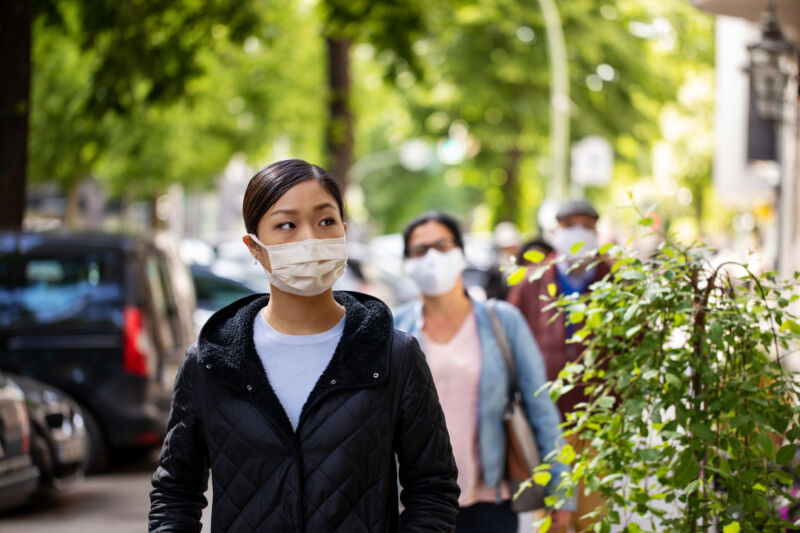
Original story, 2:32 pm ET:
As part of an ongoing press conference, the Centers for Disease Control and Prevention responded to recent data on the effectiveness of vaccines and updated its guidance on mask use and physical distancing. Under the new guidance, people who are fully vaccinated (meaning they have waited two weeks after the final dose of their vaccine) can now skip mask use and social distancing both indoors and outdoors.
“Anyone who is fully vaccinated can participate in indoor and outdoor activities—large or small—without wearing a mask or physical distancing,” said CDC Director Rochelle Walensky. There are some exceptions; vaccinated people should still mask up in places like hospitals, airplanes, and other forms of public transport. But for the most part, people who have been vaccinated can return to normal activities.
Update, 3:45 pm ET: Additional details from the press conference follow.
Why now?
In announcing the new guidance and answering press questions, Walensky emphasized that the change was driven by a number of scientific and practical decisions. Some of the information used to make the decision has only come out within the last two weeks, the time interval since the CDC made relatively minor tweaks to its advice on what precautions vaccinated people should take.
That information includes recent studies showing that the COVID-19 vaccines are extremely effective, even against variants. Just as critically, vaccinated people who do pick up an infection appear to be unlikely to spread it; Walensky cited new data showing that vaccinated people have lower viral loads and shorter infections. This lower risk means that vaccinated individuals are unlikely to serve as a bridge that allows the virus to travel between unvaccinated individuals.
Anyone who is vaccinated but starts experiencing symptoms should immediately go back to mask use for as long as the symptoms persist. And should a sufficiently worrisome variant pop up, mask use could return, Walensky said.
Another reason for the policy change is the widespread availability of vaccines in the US. White House pandemic advisor Andy Slavitt started the press conference with a rundown on where things stand: 250 million shots have been dispensed since President Joe Biden took office, and nearly 60 percent of US adults have now had at least one shot. We’re now at the lowest level of COVID-19 deaths since April of last year, and case counts have dropped by nearly half since all adults were made eligible for vaccinations.
Walensky continued to emphasize what has changed since the last guidance update, saying that case counts have dropped by a third in the last week alone. She also cited yesterday’s decision to expand vaccination eligibility to younger children.
Some caveats
There are some cases where mask use is still recommended, including on all forms of public mass transport, as well as train stations, airports, and bus depots. (Walensky said that travel guidance will be updated shortly.) Medical facilities will still be able to set their own policies, and state governments can choose not to adopt these recommendations.
The speakers repeatedly emphasized two additional points. First, unvaccinated people remain at high risk and need to take all the precautions recommended prior to this change in guidance. Second, vaccinated people may have reasons for wanting to continue to use a mask. People have varying tolerances of risk, and some have regular contact with immunocompromised people. Dr. Anthony Fauci, director of the National Institute of Allergy and Infectious Diseases, said that “they shouldn’t be criticized,” while Slavitt said that “as a rule, we’re anti-side-eye.”
The final and perhaps most unusual aspect of this press conference is that it was rather forward-looking. Walensky talked about using some of the funds made available as part of the coronavirus relief package to reinvigorate state-level public health capacity, including billions to be spent toward hiring new health workers to be better prepared for the next pandemic. And Fauci spent some time talking about prospects for developing a universal anti-coronavirus vaccine that could protect us from relatives of the SARS/MERS family of viruses that haven’t made the jump to humans yet.
https://arstechnica.com/?p=1764922

